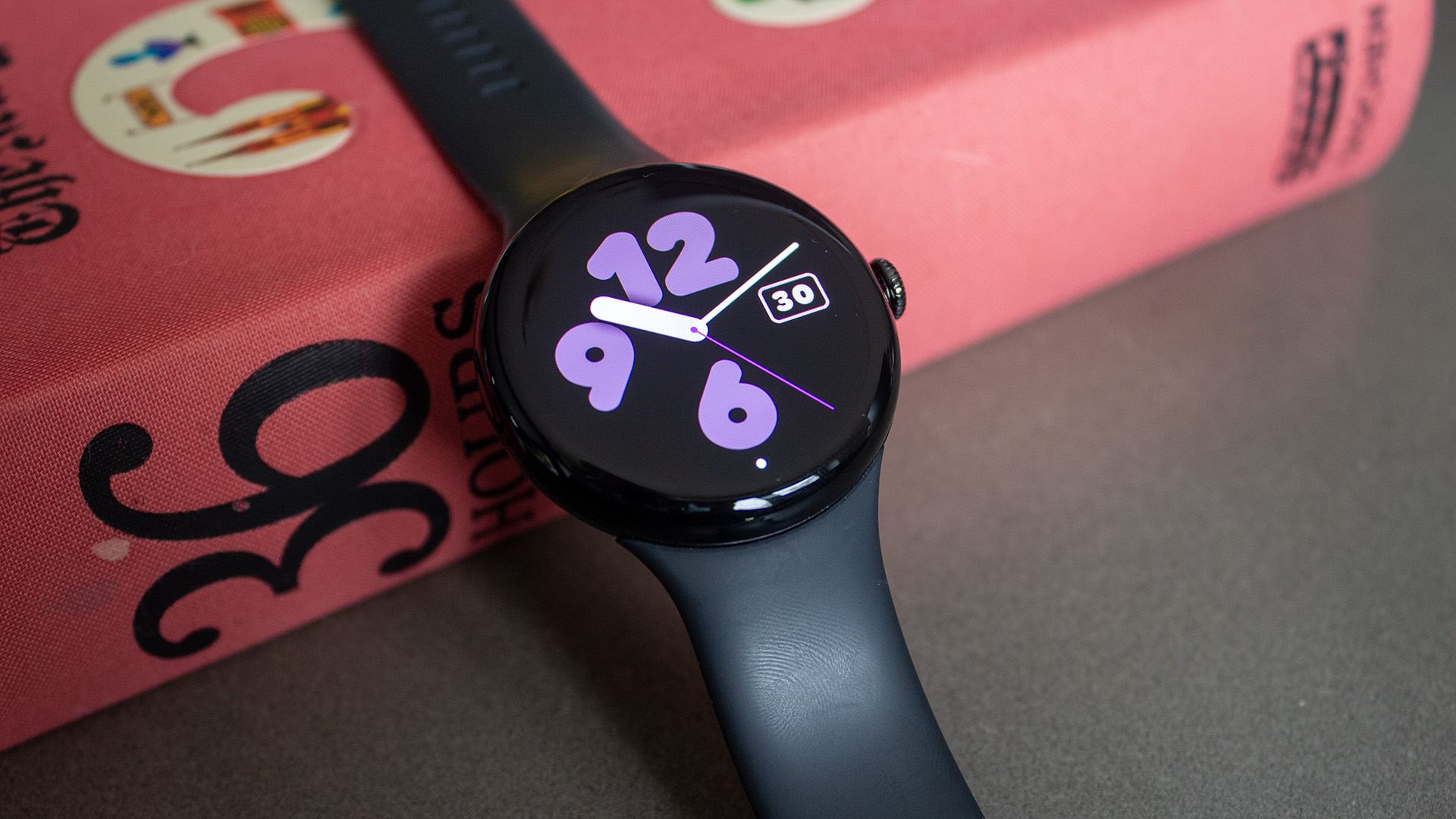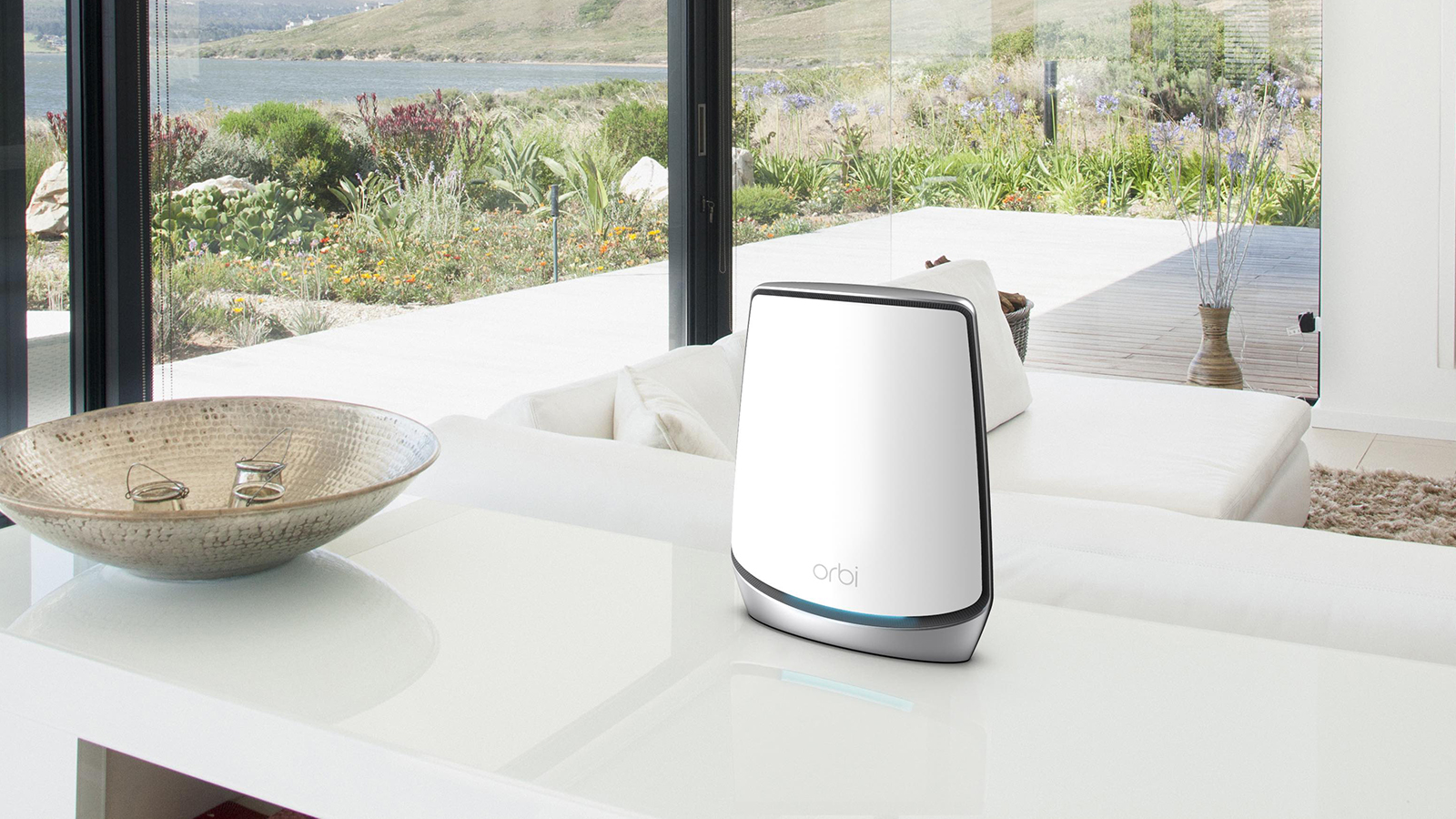

With the best mesh network devices you can wave goodbye to Wi-Fi woes. By combining multiple wireless access points into a single “mesh” with a single name and login, your Wi-Fi can reach places that a single router can’t – and that means they’re a great choice for larger spaces or anywhere a single router might struggle.
That’s particularly important now that so many of us are not just watching Netflix at home but working or studying too. Wi-Fi problems that weren’t too annoying before COVID came along are much more of an issue when you’re trying to get a good quality video call or when you’re sharing the same network with other members of your household.
Right now we reckon that the best mesh network devices include the Eero WiFi and Netgear Orbi WiFi 6. Both products have won coveted T3 Platinum Awards, both are easy to set up and use, and both will make a big difference to the coverage in your home. But which one is better? Let’s explore the pros and cons.
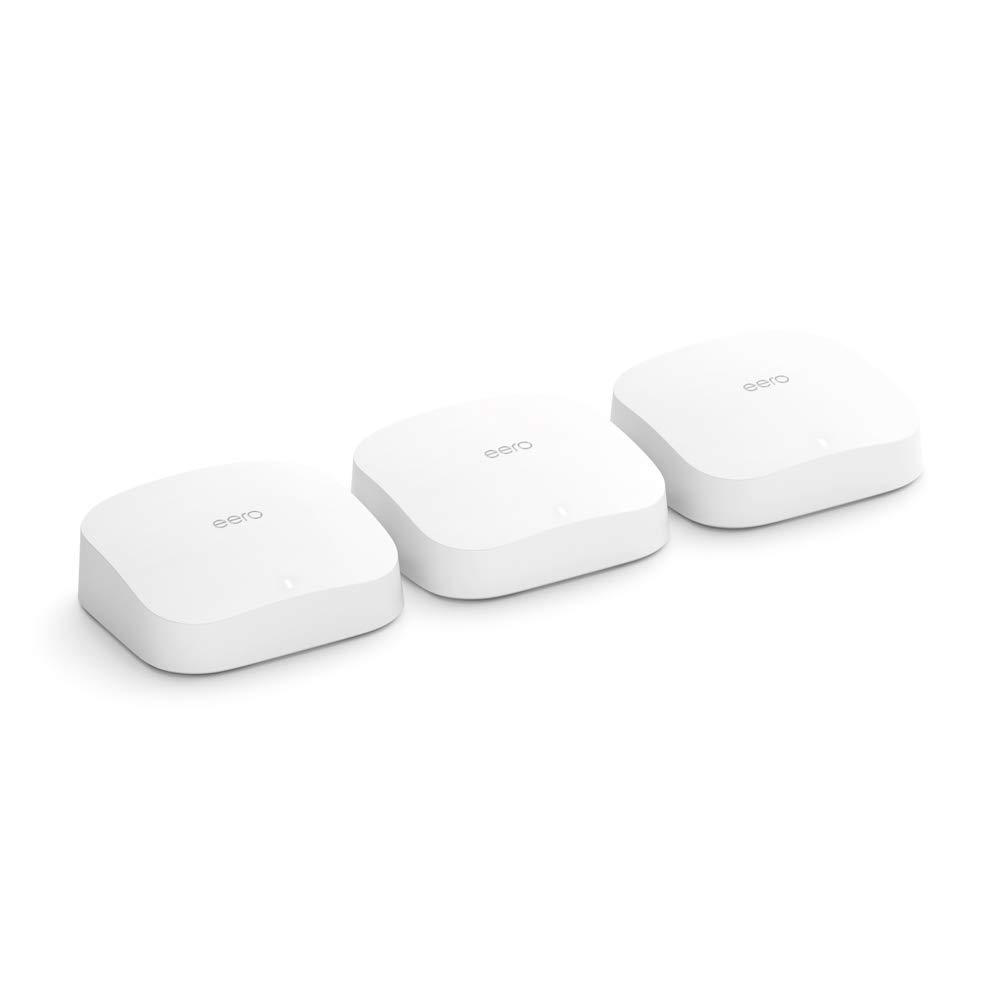
Eero vs Netgear Orbi Wi-Fi 6: coverage and connectivity
Eero has dual-band 2.4GHz and 5GHz Wi-Fi, and the standard version is recommended for homes of up to 140 square metres (1,500 square feet) for a single device and 460 square metres (5,000 square feet) for the three-pack. There’s also a more powerful tri-band version, the Pro, which is recommended for homes up to 160 to 560 square metres (1,7560 to 6,000 square feet) for the single and three-pack respectively. The standard Eero has 802.11ac Wi-Fi but not Wi-Fi 6, aka 802.11ax. There are two Gigabit Ethernet ports on each device.
Netgear’s Orbi promises to cover 5,000 square feet (about 465 square metres) from a two-pack, supports Wi-Fi 6 and has four wired Ethernet connections on each satellite as well as on the router itself. It’s a tri-band device with a dedicated backhaul that uses one band to communicate between the Orbi devices and their router, leaving the other two bands free for your other hardware to communicate with the Orbi network.
The Netgear is capable of data speeds of up to 2,400Mbps on 5GHz while the Eero runs out of puff at 900Mbps (for the Eero 6). As ever, those are theoretical speeds and you’ll get less in real-world conditions or on a shared network with other devices – but they’re still far in excess of the speeds of most people’s broadband connections or the minimum requirements for Spotify (0.7Mbps), HD streaming (5Mbps) or Ultra HD/4K (25Mbps).
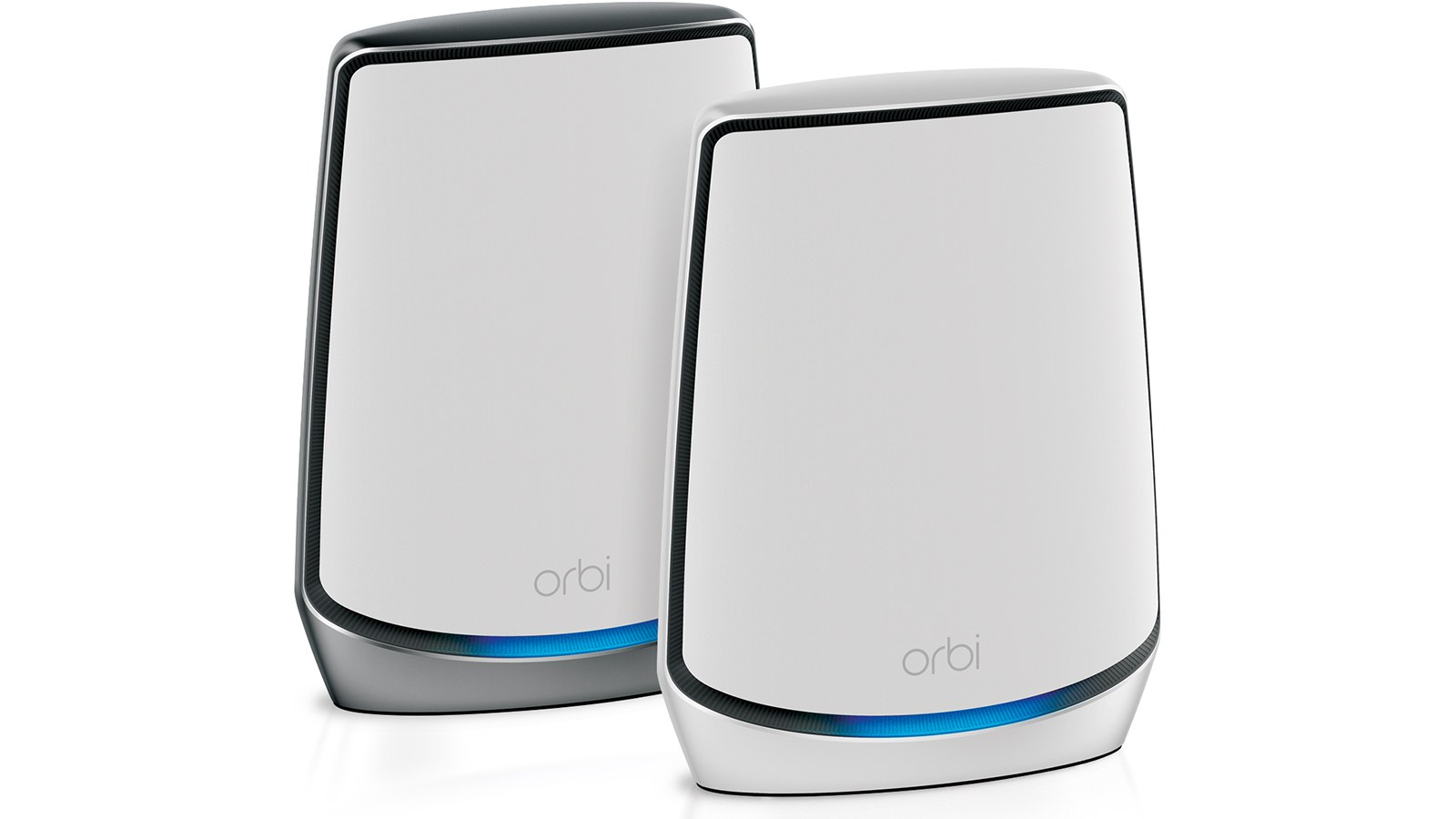
The Eero is much cheaper than the Netgear: a router is £99 and a three-pack £249. It’s important to note that that price is for the standard Eero: the Pro version costs £179 for the router or £429 for a three-pack.
Sign up to the T3 newsletter for smarter living straight to your inbox
Get all the latest news, reviews, deals and buying guides on gorgeous tech, home and active products from the T3 experts
The Netgear Orbi is considerably more expensive than even the Eero Pro. You’re looking at £709.99/$699.99 for a two-pack (though double-check the widgets on this page), with single satellites costing £399 / $379.99.
As we said in our Eero review: “There are faster options out there than the new third-gen Eero – not least the more expensive Eero Pro – but for most users the Eero should give you the speeds, the stability, and the coverage you're going to need for a home Wi-Fi network. It's a quality option for fixing Wi-Fi around your home – the only problem is there's so much competition.”
On a purely financial level there’s no doubt that the Eero is the better buy. If you’re not a power user and your problem is coverage rather than sheer speed, or if you don’t have devices that can take advantage of Wi-Fi 6, then the Eero product can do your whole home for nearly half the price of a single Orbi satellite.
But, and it’s a big but, the Eero does not give you the latest Wi-Fi technology and it can’t match the sheer speed of the Orbi products. If you have the money to spend and you’re a demanding user who wants to have the fastest possible network connection absolutely everywhere, the Orbi delivers an exceptionally fast network. In our Netgear Orbi review we said that “there's no doubt about it though: with strong speed across a wide area and support for up to 100 devices, the Orbi 6 is going to almost certainly give you a faster, more reliable Wi-Fi network than you've got at the moment, and for a lot of people that'll be worth paying for.”
- Best SSDs for rapid loading times
Writer, musician and broadcaster Carrie Marshall has been covering technology since 1998 and is particularly interested in how tech can help us live our best lives. Her CV is a who’s who of magazines, newspapers, websites and radio programmes ranging from T3, Techradar and MacFormat to the BBC, Sunday Post and People’s Friend. Carrie has written more than a dozen books, ghost-wrote two more and co-wrote seven more books and a Radio 2 documentary series; her memoir, Carrie Kills A Man, was shortlisted for the British Book Awards. When she’s not scribbling, Carrie is the singer in Glaswegian rock band Unquiet Mind (unquietmindmusic).
-
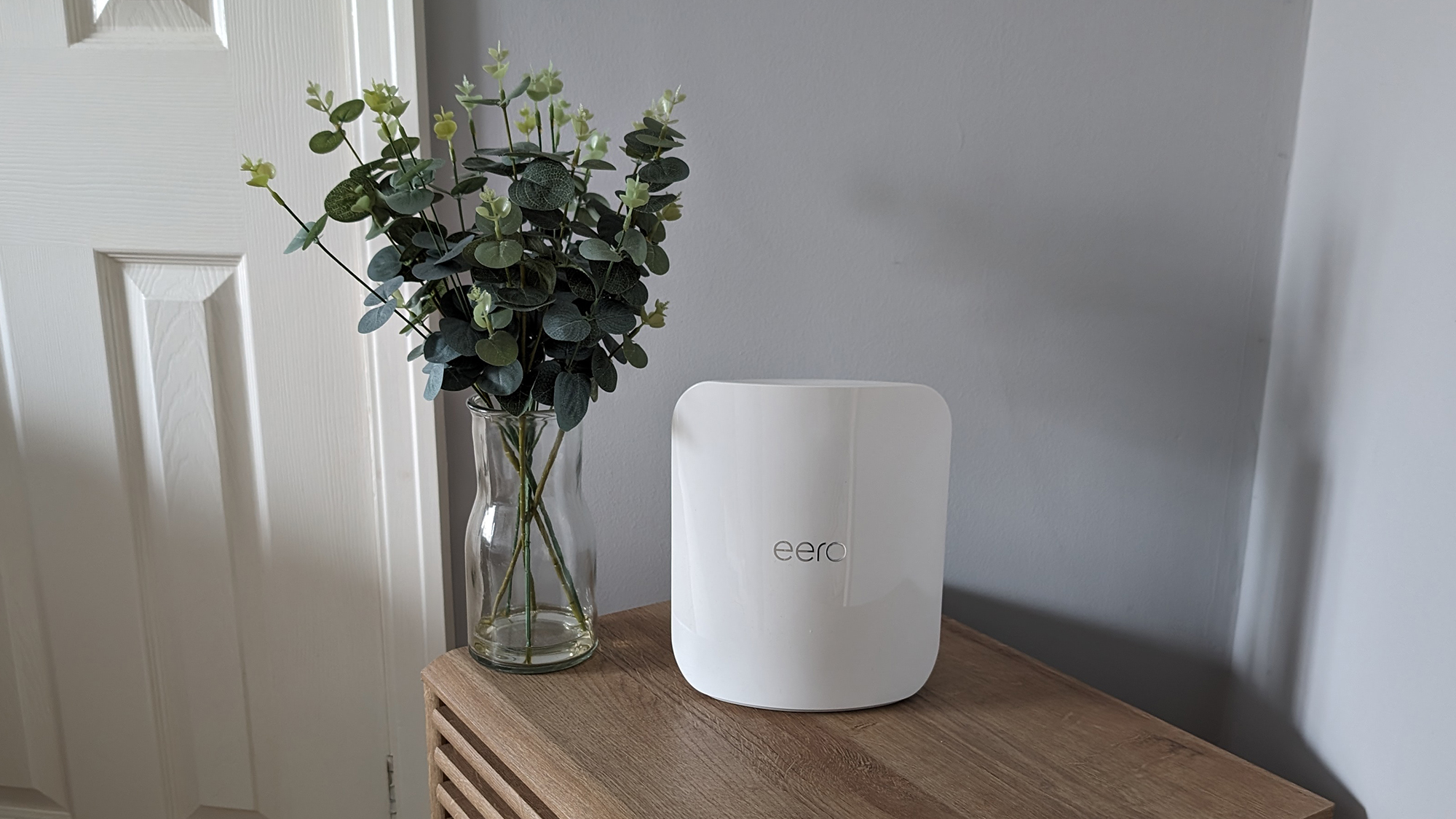 Eero Max 7 review: powerful yet pricey next-gen mesh Wi-Fi
Eero Max 7 review: powerful yet pricey next-gen mesh Wi-FiWi-Fi 7 is here, and the Eero Max 7 gets it into every corner of your home
By David Nield
-
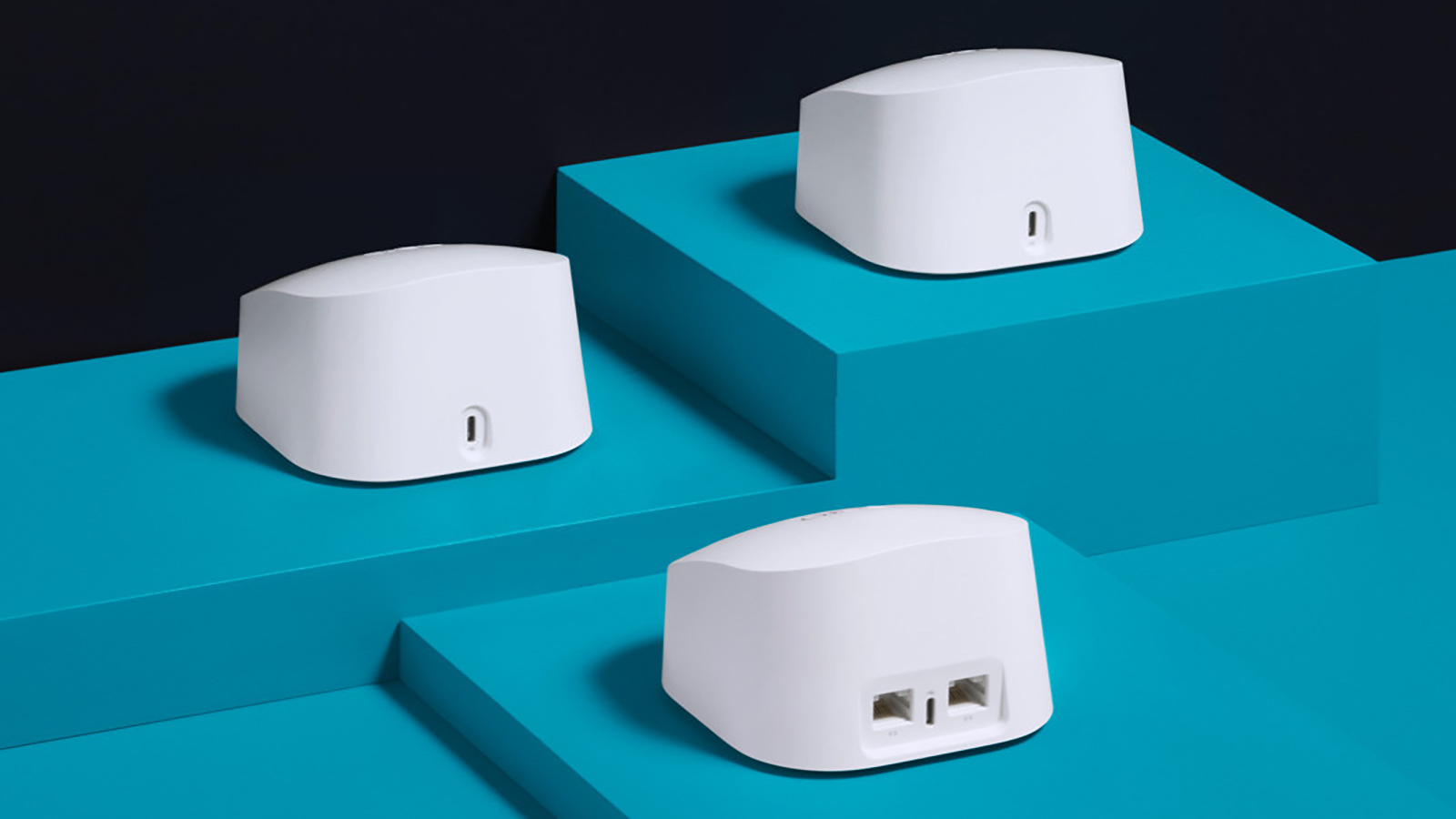 Eero 6 Mesh Wi-Fi review: affordable mesh networking for the masses
Eero 6 Mesh Wi-Fi review: affordable mesh networking for the massesThe Eero 6 system is simple, fast and inexpensive
By David Nield
-

 Netgear Orbi WiFi 6 review: super-fast next-gen Wi-Fi, at a price
Netgear Orbi WiFi 6 review: super-fast next-gen Wi-Fi, at a priceThe Netgear Orbi WiFi 6 shows how speedy and simple home networking can be
By David Nield
-
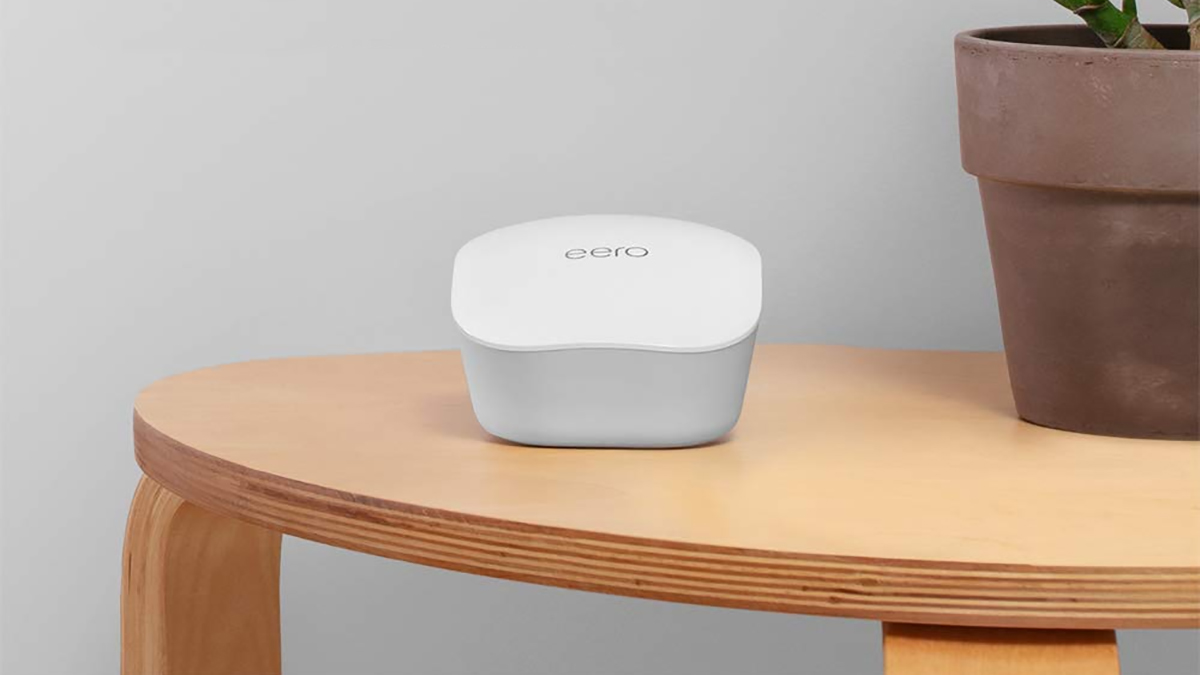 Eero mesh router review: Eero is more affordable and more effective than ever
Eero mesh router review: Eero is more affordable and more effective than everThe new Eero is better than ever before at solving your Wi-Fi woes
By David Nield

